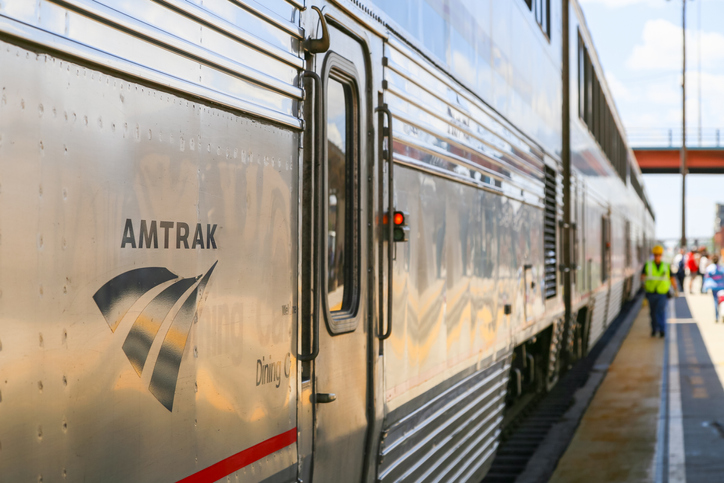
Passengers aboard commuter trains and commercial buses aren’t afforded most of the protections standard on cars and airplanes, even though the National Transportation Safety Board (NTSB) argues these measures would save lives.
Federal Regulators Ignore NTSB Recommendations
Commercial bus accidents killed 44 Americans in 2017, while 21 commuter train passengers and employees died during 2017 and 2018. In recent years, thousands more were seriously injured while travelling on Amtrak and other passenger railways, as well as interstate bus lines like Greyhound.
“Those 44 people could have been saved,” T. Bella Dinh-Zarr, a recently retired member of the NTSB, told The New York Times. “In some cases, just simply wearing their seatbelt would have saved them from being severely injured and then dying from those injuries, or being ejected and killed, or suffering traumatic brain injury.”
For years, the NTSB has recommended various measures to improve passenger safety on buses and trains, including installing lap-shoulder seatbelts, requiring riders to use their seatbelts, and improving window safety and overhead baggage restraints.
For just as long, however, the federal agencies that regulate Amtrak, Greyhound and a host of other national and state carries have ignored the Board’s advice.
NTSB Recommended Stronger Window Standards 47-Years Ago
According to The New York Times, large side windows present one of the greatest threats to train passengers. Yet 47-years after the NTSB first issued recommendations aimed at preventing passenger ejections, Amtrak’s windows, which are secured with rubber grommets, remain a problem and can easily pop out during a crash or derailment.
In fact, that’s exactly what happened in 2015, when an Amtrak train derailed in Philadelphia, killing 8 passengers and injuring 185 others.
“The NTSB found that if the passenger car windows had remained intact and secured in the cars, some passengers would not have been ejected and would likely have survived the accident,” the subsequent accident report states. “Further, the passengers were not protected from serious injuries resulting from being thrown from their seats when the cars overturned.”
Federal regulators have also rejected the NTBS’s repeated recommendations for passenger train seatbelts, as well as better overhead compartment restrains to prevent baggage from becoming projectiles during a crash.
While commercial buses built after 2016 must have seatbelts, passengers aren’t required to use them. The NTSB has urged states to require the use of seatbelts on any bus that has them, but only California has enacted such a law.
Trump Administration Scraps Sleep Apnea Screening Rule
The Board has also been a long-time advocate of sleep apnea screening for all commercial drivers, including those who operate 18-wheelers, passenger buses, and commuter trains.
Obstructive Sleep Apnea is a treatable, chronic disease that causes patients to experience episodes of airway obstruction while sleeping, resulting in irregular sleep and subsequent daytime fatigue. The condition is frequently undiagnosed, and commercial drivers evidently suffer from higher rates of sleep apnea compared to the general population.
The Obama Administration did propose a sleep apnea screening rule after a crash involving a tour bus and an 18-wheeler killed 13 people outside of Palm Springs, California in October 2016. Unfortunately, the Trump administration abandoned that rule-making effort shortly after the President took office.
Undiagnosed, Obstructive Sleep Apnea was also linked to two recent New York commuter train accidents and a Greyhound bus crash that resulted in the largest fatigue-related settlement in the company’s history.
Contact Our Undefeated Accident Lawyers for a Free Consultation by Calling 1-888-603-3636 or Click Here
Our Undefeated Bus Accident Lawyers have won over $1 Billion for thousands of clients in Texas, Louisiana, and across the United States, including some of the Largest Verdicts and Settlements in Defendants’ History.
Call 1-888-603-3636 or Click Here to send us a confidential email via our “Contact Us” form.
All consultations are free, and because we only represent clients for a contingency fee, you’ll owe nothing unless we win your case.